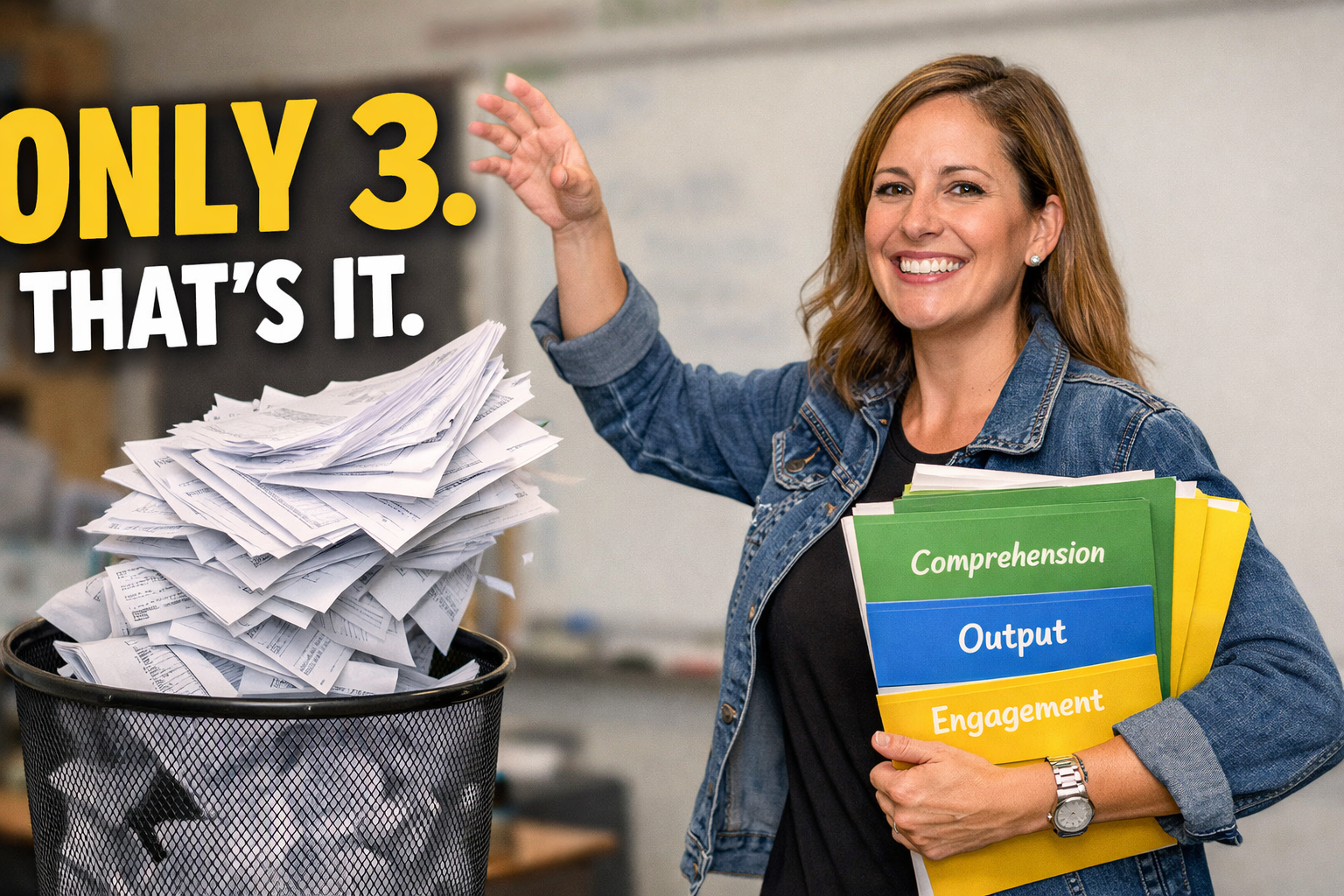
Today, we're going to explore the "Top 5 Strategies for Differentiating Assessments" in our comprehension-based language classes.
So, gear up for some fun, practical tips that will engage your students, cater to diverse learning styles, and make your teaching journey truly exceptional.
Tailoring Assessments: The Key to Every Student's Success
In our language teaching world, a one-size-fits-all approach is a no-go.
Instead, think of your assessment methods as a buffet, where every student can find something that tantalizes their taste buds.
While some students might demonstrate their language prowess in written form, others might excel in oral assessments or express themselves through creative, visual mediums.
By customizing assessments to various learning styles and preferences, we're not just leveling the playing field; we're crafting a vibrant arena where every student can shine.
Unleash Creativity with Diverse Assessment Formats
Picture your classroom as a canvas, with each student wielding their unique brush.
Some might paint their understanding through essays or written assignments, while others might prefer the spoken word or visual expressions like infographics or multimedia projects.
Allowing varied assessment formats is more than just accommodating different learners; it's about igniting their creative spark and molding them into confident, versatile language maestros.
Unlocking Potential with Tailored Assessments
In our classrooms, we've got a secret recipe for success: crafting assessments that resonate with our students' passions and strengths.
Whether they're budding filmmakers, storytellers, or digital wizards, providing alternative assessments means tapping into what fires them up.
This approach doesn't just cater to diverse talents; it fuels a passion for language learning, turning assessments from a chore into a thrilling journey of self-discovery and empowerment.
Customized Excellence: Personalized Assessment for Every Learner
Recognizing that each student comes with a unique set of skills and areas for growth, we need to tailor our assessment criteria accordingly.
For some students, this might mean extra support or scaffolding, while for others, it might involve raising the bar to challenge their advanced abilities.
By personalizing assessments, we're not just acknowledging individual differences; we're nurturing an environment where every learner can excel and feel proud of their achievements.
Take Your Skills to the Next Level at Assessment Academy
Ready to dive deeper into the world of differentiated assessment?
Our Assessment Academy is your ticket to becoming a master of proficiency-based grading.
This 10-part webinar series is packed with insights and practical skills, catering to educators at all stages of their teaching journey.
Join us and transform your understanding and implementation of effective assessment strategies.
Formative Assessments: The Compass for Language Teaching
Think of formative assessments as your GPS on a cross-country road trip, guiding your instructional decisions and ensuring you're on the right path.
These regular check-ins offer a real-time glimpse into your students' progress, allowing you to adjust your teaching strategies accordingly.
Quizzes, discussions, or peer evaluations – formative assessments keep you in tune with your students' learning journey.
Wrapping It Up
And there you have it – five game-changing strategies to supercharge your comprehension-based language classroom!
Happy Comprehensible Input!



